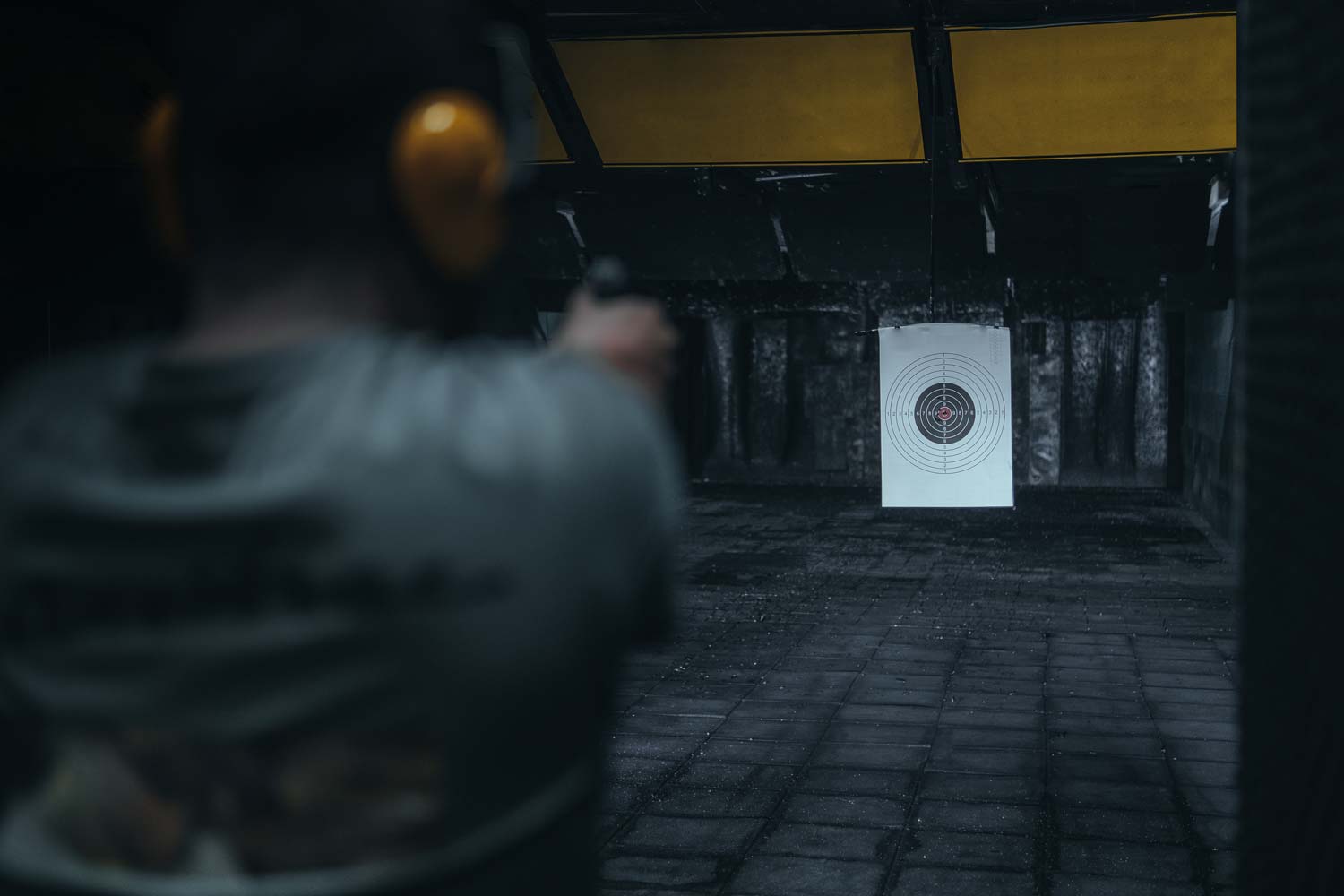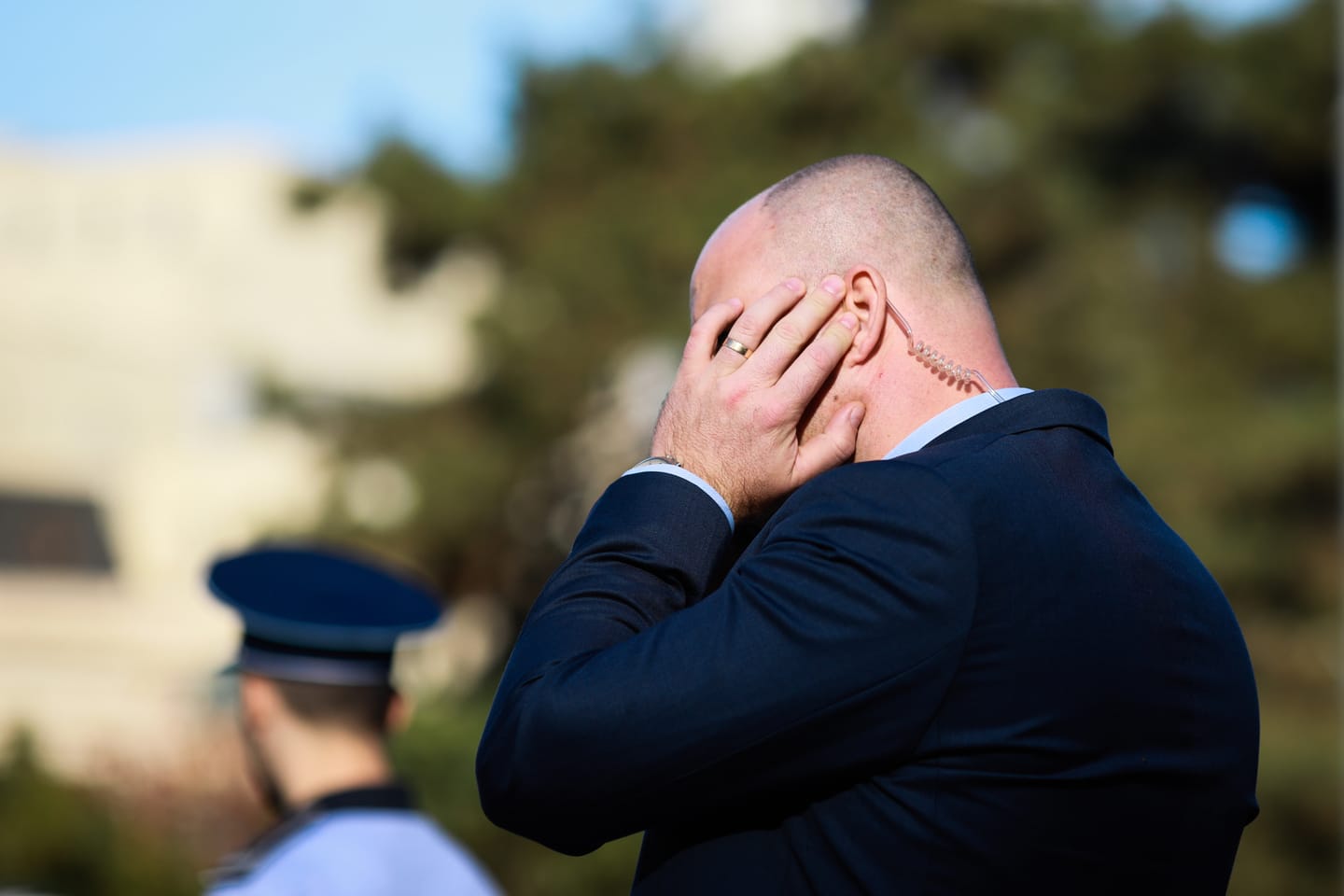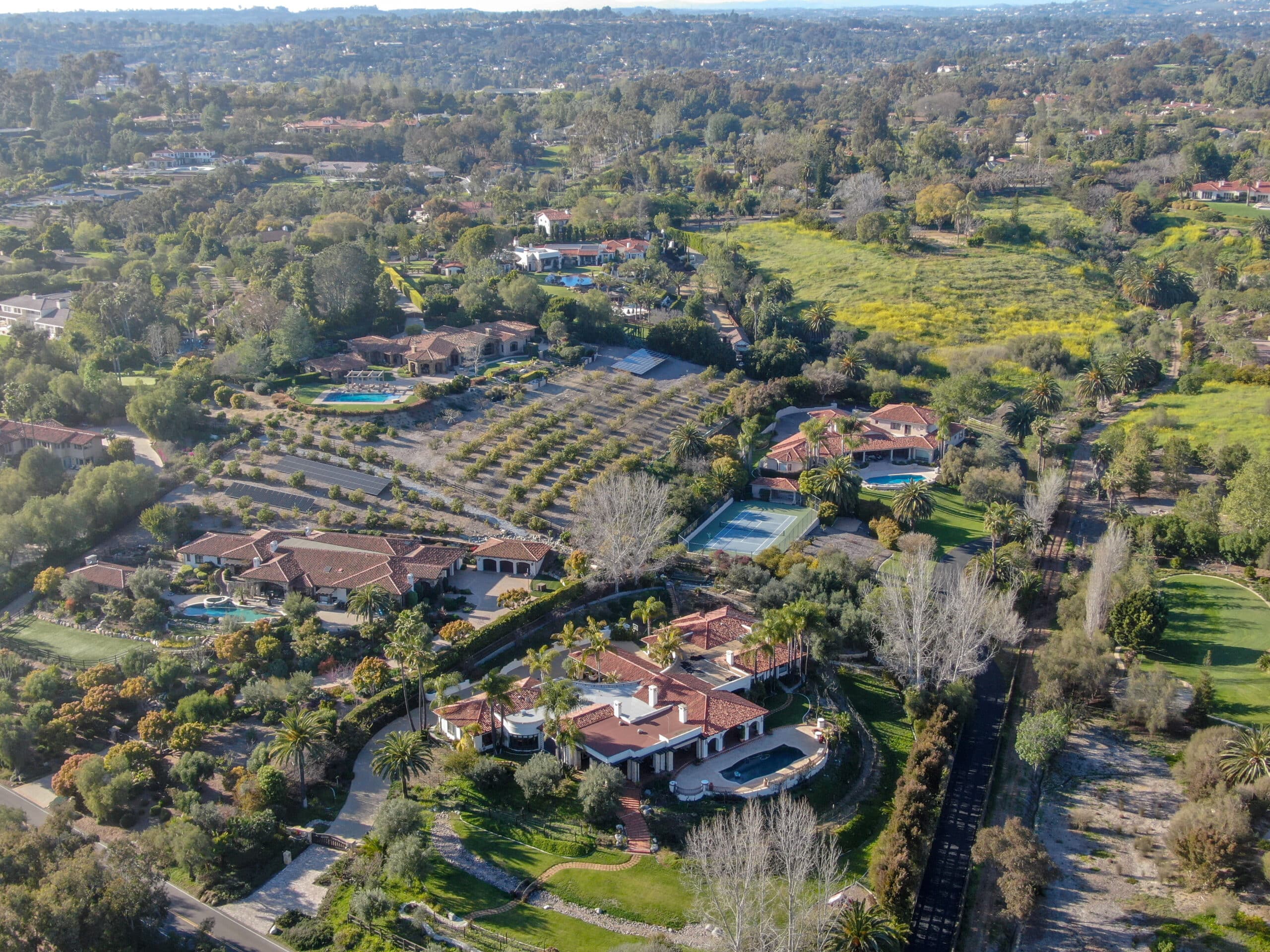Estimated reading time: 17 minutes
Picture this: you’re stepping into a world where every detail matters, and your sharp eyes could shield you from danger and a life saved. That’s the pulse-racing reality for those who learn to become a bodyguard. It’s not just about bulging biceps or steely stares; it’s an art form woven with threads of vigilance, strategy, and unwavering commitment.
The road to becoming someone’s last line of defense is layered with dedication – from security guard training courses to mastering close protection maneuvers. Imagine transforming into that trusted guardian capable of sniffing out threats before they bloom into chaos around the corner. With rigorous practice and sharp instincts, these guardians protect and inspire confidence in those they serve. Their path is marked by dedication and a steadfast commitment to excellence, ensuring peace of mind for all within their watchful embrace.
Table Of Contents:
- Understanding the Role and Responsibilities of a Bodyguard
- Basic Requirements for Aspiring Bodyguards
- Licensing and Certification Pathways
- Advanced Training Opportunities
- Professional Development Through Education and Experience
- Developing Core Skills for Personal Protection
- Specialized Fields within Bodyguard Careers
- Legalities & Ethical Practices in Executive Protection
- Career Advancement Strategies for Bodyguards
- FAQs in Relation to How to Become a Bodyguard
- Conclusion
Understanding the Role and Responsibilities of a Bodyguard
Becoming a bodyguard isn’t just about looking tough beside high-profile individuals. It’s an intricate dance of strategy, strength, and smarts. A mix between a chess player and a gladiator—bodyguards are tasked with executive protection that demands much more than muscle.
The Backbone of Personal Security
A day in the life? Think less Hollywood glamor and more hawk-like vigilance. From personal protection to crowd control strategies, every move is calculated for risk assessment because it’s not just about responding to threats but preventing them. You must have eyes like an eagle, always watching over your client as if they’re carrying the crown jewels—which sometimes they are.
This career requires situational awareness sharp enough to slice through danger before it even whispers hello. And let’s be honest: while you might look calm on the surface when protecting VIPs or other high-profile figures at swanky events or bustling streets—you’re constantly mapping escape routes faster than GPS can say “rerouting.”
Skill Set Sharpener
If unarmed combat were an art form—and we argue it is—then close protection officers are its Michelangelo. They blend martial arts finesse with legal know-how so smoothly that any potential aggressor would think twice before making their next move.
But there’s grace here, too; these security pros know how delicate their duty is when offering personal security services amidst throngs of paparazzi flashes or in quiet corridors where discretion is king (or queen). Every action reflects ethical conduct standards as stringent as military drills—all tailored within tight boundaries set by laws tighter than Fort Knox security protocols.
Gearing Up for Guard Duty
Did you think joining this elite crew was easy? Hold up. Before flexing those protective muscles, one must navigate California guard card licensing—a rite of passage involving age requirements (gotta be 18), background checks clean enough to eat off (thanks to DOJ and FBI), plus training programs solidifying everything from medical assistance techniques to firearms proficiency—the latter being optional unless your job says otherwise).
To join the ranks of elite protectors, tackle stringent licensing requirements including background checks and comprehensive training that sharpens both mind and might.
Basic Requirements for Aspiring Bodyguards
Eligibility Criteria for Security Professionals
If you’re looking to step into the world of personal security and become a security guard against danger, know that the journey starts with meeting some non-negotiable requirements. First off, age is not just a number in this game; you must be at least 18 years old—a milestone that says ‘welcome to adulthood’, and more importantly, it’s your ticket to apply for a California Guard Card. This card isn’t just another ID in your wallet; it’s proof that you’ve got what it takes legally to stand on the frontline of protection.
Beyond your birthday celebration lies another crucial box to tick: education. While there’s no global decree stating bodyguards must hold degrees like treasures, having at least high school-level smarts sets a solid foundation. It shows clients you can handle complex instructions and maybe outsmart those with ill intentions—because brains often beat brawn.
Importance of Clean Background Checks
Your past matters when safeguarding others’ futures. Thus, undergoing thorough background checks by both DOJ and FBI is as mandatory as wearing shoes outdoors—it’s about making sure nothing comes back to bite later on. These checks sift through your history like searching for gold nuggets; they ensure trustworthiness shines above all else before entrusting someone’s life into your hands.
A clean slate doesn’t only mean skipping jail time or dodging run-ins with law enforcers over unpaid parking tickets (although let’s keep those clean too). It extends beyond avoiding cuffs—it means being responsible enough throughout life so far that government agencies give an approving nod when they see your name.
To wrap up these first steps toward becoming a guardian angel in civilian clothes—or tuxedos if we’re talking VIP gigs—you’ll need physical fitness levels akin to superheroes… without capes. Being fit allows you not just chase down threats but also potentially leap over small buildings—or maybe just fences—in single bounds during emergencies.
Licensing and Certification Pathways
Get the California Guard Card
To become a bodyguard in California, it is essential to obtain a California Guard Card. This card serves as your entry pass into the world of professional protection. The process of obtaining a guard card is straightforward. You must complete 40 hours of training at a facility licensed by the Bureau of Security and Investigative Services (BSIS). This training covers various aspects, including public relations and emergency handling.
You can receive the required training from reputable sources like GuardCard.net. They specialize in preparing individuals for success in the field. To be eligible, applicants must have reached the age of 18 and successfully passed background checks conducted by both the DOJ and FBI.
Obtain Firearms Training and Permits
In addition to physical strength, bodyguards often need to possess firearms skills to protect VIPs from potential threats. To legally carry firearms, it is crucial to undergo tactical firearms training. This training hones your shooting abilities, ensuring accuracy and precision in critical situations. Depending on the specific job requirements, you may also need to obtain a Concealed Firearms Permit.
A Concealed Firearms Permit is not just a piece of paper; it provides assurance that you are prepared to handle challenging situations effectively. For optimal training, enlisting the help of experienced professionals such as former military personnel or law enforcement experts is highly recommended. Their expertise and real-life experiences can provide valuable insights into the role of a bodyguard.
Advanced Training Opportunities
Martial Arts Proficiency for Unarmed Combat Scenarios
You know the basics. You’ve got the moves. But when push comes to shove in a high-stakes situation, will your martial arts training hold up? To be sure, diving into specialized martial arts training is more than just a good idea—it’s crucial for those unarmed combat scenarios that demand split-second decisions and flawless execution.
Think of it like this: if you’re guarding someone with paparazzi swarming like bees to honey, knowing how to handle yourself without throwing punches can be the difference between an escort job well done and an all-out brawl on TMZ. And let’s face it, no one wants their 15 minutes of fame to come from a headline reading “Bodyguard Brawl.”
Defensive Driving Techniques for Protection Officers
The road can be as unpredictable as a plot twist in a spy novel—especially when you’re tasked with protecting valuable cargo (a.k.a., humans). That’s where defensive driving courses slide into your bodyguard training programs toolkit faster than you can say “seatbelt check.” These aren’t your average Sunday drives; they’re about mastering maneuvers that could give Jason Bourne car chase envy.
We’re talking J-turns sharper than social media trolls and evasive techniques slicker than political debates—all designed so you keep control even when chaos hits the fan. With Pacific West Academy’s immersive approach, these skills go from zero-to-hero real quick because they get down to brass tacks—no fluff or filler here.
To truly shine as a protection officer or close protection specialist dealing with anything from rowdy crowds at concerts to quiet residential security details—you need every trick up your sleeve and then some. So buckle up; advanced bodyguard training programs are not just add-ons but essentials that turn rookies into seasoned pros who don’t break sweat—or rules—in tight spots.
Professional Development Through Education and Experience
When you’ve spent time in the trenches, whether it’s as a veteran or walking the beat, you’ve got an edge in executive protection. Let’s say your military experience taught you more than just how to shine boots—you learned skills that could make someone else feel like they’ve got their own personal Fort Knox. This isn’t about push-ups; it’s about transferring that situational awareness and conflict resolution prowess into protecting another person’s six.
Leveraging Military Background in Executive Protection
Veterans often step onto the bodyguard scene with a tactical advantage. The discipline, physical fitness, and cool under pressure are not just buzzwords but real assets on this career path. But what seals the deal? Additional education—think criminal justice or security management courses—which can turn raw talent into refined expertise for those seeking roles within private security agencies like Pacific West Academy.
A study shows veterans have transferable skills highly valued in personal protection gigs—it’s not just talk; there’s hard evidence backing up why ex-military folks excel at keeping people safe.
Benefits of Law Enforcement Experience
Prior law enforcement officers bring their A-game when it comes to reading situations faster than a Sherlock Holmes novel—and resolving conflicts without going full action hero mode is part of that skill set too. If handling hairy situations was an Olympic sport, these pros would be taking home golds left and right.
Digging deeper into investigative services sharpens their ability to sniff out potential threats before they even become issues—kind of like having spidey senses but better because they’re backed by training and instinct honed on city streets.
Developing Core Skills for Personal Protection
The role of a bodyguard is as complex as it is critical, demanding more than just muscle to ward off threats. It’s about having sharp situational awareness and the ability to conduct thorough threat assessments—skills that are paramount in preventing violent crimes before they happen.
Mastering Situational Awareness: Key to Preventing Violent Crimes
Situational awareness isn’t just a fancy term; it’s your secret weapon. Imagine playing chess where every move counts—not just yours but everyone else’s around you. That’s what situational awareness is like for bodyguards. You need eyes on the back of your head, always scanning, assessing risks before they escalate into real danger.
And let me tell you something funny—most folks think being aware means staring down suspicious characters until they squirm. But true pros know it’s less about intimidation and more about blending in while keeping their senses dialed up to eleven.
Unarmed Combat Skills Training: Enhancing Personal Security Measures
No one wants their personal security plan to rely solely on throwing punches, but sometimes things get physical despite our best efforts at de-escalation. That’s when unarmed combat skills come into play—a blend of martial arts finesse and street-smart scrappiness that can help protect both yourself and those under your watchful eye without resorting immediately to weapons.
To sharpen these skills, look no further than programs offered by Pacific West Academy. They don’t mess around with fluff; we’re talking practical takedowns, escapes from holds, and learning how not to get hit—all vital techniques that make all the difference when push comes literally shove.
Beyond hand-to-hand defense lies another realm often overlooked: crowd control strategies. Navigating through masses or dealing with an overzealous fan requires a delicate balance—you’ve got to be assertive yet non-threateningly so—the velvet glove rather than the iron fist approach works wonders here.
All this training primes you for success because let’s face it – there’s no room for second-guessers in this line of work.
Specialized Fields within Bodyguard Careers
It’s an art, especially when you’re diving into the niche fields of close protection or residential security. You need to be more than tough; you’ve got to have brains and brawn in equal measure.
Close Protection Roles: Protecting High Profile Individuals
If rubbing elbows with VIPs while keeping them safe is your kind of gig, then specializing as a close protection officer might be right up your alley. This isn’t some run-of-the-mill guard job—it’s like being the secret service for celebrities, CEOs, and political hotshots. Imagine being tasked with creating an invisible shield around someone whose name hits headlines faster than lightning strikes. But don’t let that glamour fool you; this role demands razor-sharp situational awareness because danger doesn’t make appointments.
In these roles, it’s not enough to know how to throw a punch or shoot straight—though those skills come in handy—you’ll also need specialized training that covers everything from evasive driving techniques (think James Bond) to threat assessment (a bit like Sherlock Holmes). A quick trip over to Pacific West Academy can get you started on advanced courses designed specifically for these high-stakes assignments.
Your day-to-day could involve anything from scouting locations ahead of time for potential threats—or even playing chauffeur (but think less taxi driver and more tactical navigator). Plus, given that every celebrity stalker thinks they’re sneaky as ninjas nowadays, unarmed combat training will help ensure your client stays out of harm’s way without so much as a scratch on their designer suit.
To thrive in this line of work means going beyond basic bodyguard duties—it calls for expertise unique to the lifestyles of the rich and famous where discretion is key but safety never takes a backseat. If after reading all this has got your adrenaline pumping already? Then maybe it’s time we chat about turning that excitement into action.
Legalities & Ethical Practices in Executive Protection
In the high-stakes world of executive protection, navigating legal issues and ethical conduct isn’t just smart—it’s essential. A bodyguard treads a fine line between safeguarding their client and maintaining strict confidentiality. This tightrope walk demands that they operate within the boundaries of the law while fostering an environment of trust.
Ethical Conduct: More Than Just Good Manners
To be clear, ethical conduct is not about choosing salad over soup at a state dinner; it’s about making decisions that uphold integrity and respect for all involved parties. It means recognizing that every action taken in the line of duty has consequences, both legally and personally for those we protect.
It also involves understanding sensitive information like trade secrets or personal matters must stay under wraps—no exceptions. Let’s face it; loose lips might sink ships, but in our industry, they could potentially endanger lives.
The Legal Labyrinth: Navigating with Confidence
Tackling legal issues head-on requires more than watching courtroom dramas on TV—you need to know your stuff inside out. Whether it’s understanding surveillance laws or grasping use-of-force regulations, professional bodyguards must have their bases covered to ensure compliance with local statutes and federal laws alike.
Becoming familiar with these intricacies can mean pouring over texts thicker than a triple-decker sandwich or seeking advice from seasoned security consultants who’ve been around longer than canned beer.
Maintaining Client Trust Through Confidentiality
You wouldn’t spill your best friend’s deepest secrets after promising to keep them safe—and when you’re entrusted with someone’s safety as well as their private affairs, breaking this trust is simply not an option. Clients expect discretion tighter than Fort Knox because often what you’re protecting isn’t just physical—it’s reputational too.
So remember: While wearing sunglasses indoors might make us look cool (or slightly odd), upholding confidentiality ensures we don’t end up looking foolish—or worse yet—in courtrooms facing breach-of-trust charges. Here’s where a thorough grasp on privacy laws comes into play—not only does it shield clients but also fortifies our standing as trustworthy professionals. We need to stay sharp on the legalities, keeping client information under wraps and avoiding sticky situations that can tarnish our reputation and credibility.
Career Advancement Strategies for Bodyguards
Stepping up the ladder in executive protection isn’t just about looking tough and being alert. It’s a game of brains, brawn, and savvy networking skills. To climb higher as a security consultant or protection agent, it’s all about who you know—and who knows you.
Networking: Building Professional Connections within Security Trade
Mingling with the right crowd can turn opportunities into paychecks. Hit up industry conferences or join forums where private security pros hang out. But remember, rubbing elbows is more than exchanging business cards; it’s about creating bonds that could land you your next gig protecting VIPs.
Sure, proper training is crucial—no one wants an amateur when things go south—but pairing those skills with solid professional relationships? That’s what sets apart the rookies from the seasoned vets in this biz.
Important Links:
- If your medical chops need some work (because let’s face it—a good bodyguard needs to handle more than just punches), check out American Red Cross First Aid/CPR Training.
- Or maybe dive into some advanced lifesaving moves with courses from the American Heart Association First Aid/CPR Training. Because when push comes to shove (or chokeholds happen), knowing how to keep someone breathing could be your ticket to job security.
Growing in this field also means keeping tabs on emerging trends like cyber threats and drone technology because high-profile clients love tech-savvy muscle by their side these days. And if starting your own protective services outfit tickles your fancy? Get ready for sleepless nights filled with legalities ethical practices—you’re not just guarding bodies anymore but entire businesses.
The journey from new kid on the block to sought-after close protection pro is fraught with challenges and learning curves but look at it this way: every handshake has potential and every challenge conquered makes you one step closer to becoming indispensable both behind-the-scenes and in front lines of personal safety excellence.
FAQs in Relation to How to Become a Bodyguard
How do I start being a bodyguard?
To kick off your bodyguard career, get fit, learn self-defense, and ensure you’re ready for rigorous training. Next step: snag that license.
Do bodyguards get paid good?
A seasoned bodyguard’s paycheck can be pretty solid; experience and who you guard pump up the pay rate.
How do you get hired as a bodyguard?
Hone in on security skills, grab certifications, then hunt down gigs with agencies or network to land clients directly.
What qualifies you as a bodyguard?
You’ll need top-notch physical fitness, sharp awareness skills plus the right mix of licenses and training under your belt.
Conclusion
So you’ve dived deep into the art of protection. Now, knowing how to become a bodyguard feels within reach. You understand that it’s more than muscle—it’s about mental sharpness and strategic finesse.
Dive in with training—get your guard card, firearms permit, and hone those martial arts skills. Soak up advanced courses like defensive driving for an edge.
Leverage experience from military or law enforcement if you have it; they’re golden tickets here. Keep situational awareness at your core; it’s what separates good from great in this game.
Remember: stay legal, stay ethical, and keep learning. That way, when danger looms around the corner, you’ll be ready—not just as a shield but as a skilled professional who stands confidently against chaos.












